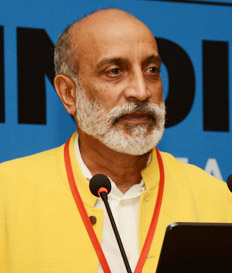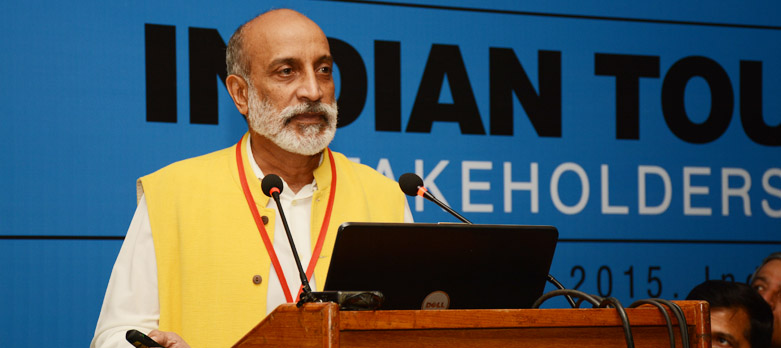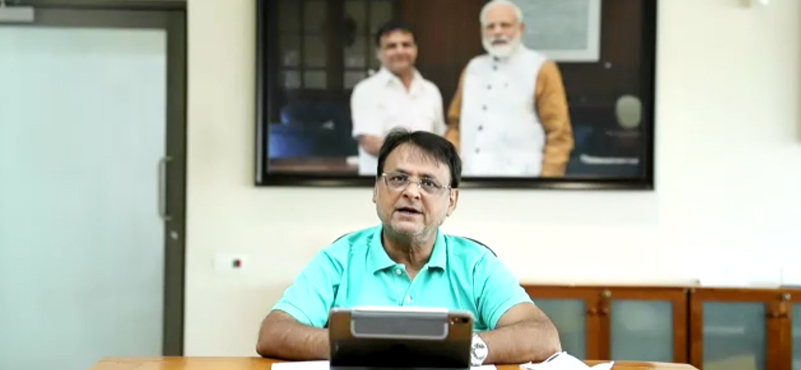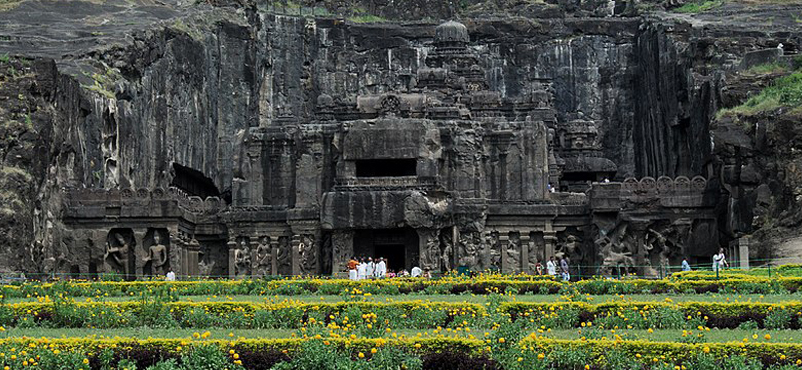India has a unique continuity of time and space – which needs to be pushed as our USP, says Aman Nath. He also asks for a change in attitude by not looking down at commercial activities around heritage as taboo.
 Calling for a complete change in mindset while engaging with heritage monuments, Aman Nath calls for a relook at the way we view commercial activities around them. “Commercial activity around heritage structures needed to be seen as efforts for conserving them and not as some taboo that needed to be resisted,” he says. He argues that it also allows the local community to re-bond with their heritage and generates employment for them – which provided a long-term assurance of commercial viability of any project.
Calling for a complete change in mindset while engaging with heritage monuments, Aman Nath calls for a relook at the way we view commercial activities around them. “Commercial activity around heritage structures needed to be seen as efforts for conserving them and not as some taboo that needed to be resisted,” he says. He argues that it also allows the local community to re-bond with their heritage and generates employment for them – which provided a long-term assurance of commercial viability of any project.
Stressing that adequate reuse was also essential for long-term preservation of monuments, he mentions that, “Creating an economic asset out of a building was not frowned upon anywhere else in the world.”
He stresses on imbibing ‘Indianness’ in Indian hospitality and service. Citing the example of Neemrana Hotels, he shares, “Our staff is mostly from the local community in Rajasthan and they have a certain dignity in the way they serve. They are courteous, yet have a certain air about them,” he says. Cannot we sell that ‘Indian’ way of serving? Why can it be used to create a USP?” he further adds.
Lamenting the urge to seek a certificate from the western world, he points towards the abject failure of Indian bodies in reaching out to the wider global community. “It is sad that ‘international’ recognition has become a must to get a so called ‘status’. Absence of Indian bodies in pushing forward our own heritage to the wider global community is a grave omission and must be addressed,” he points out.
He points towards a vacuum in projecting Indian heritage and mentions that credibility crunch or plain negligence may have caused this vacuum. “India is the only country in the world which has a unique engagement with history. Besides being the only continuous civilization in the world; our association with history is also based on a broader spectrum of being a part of an ongoing evolvement,” he explains. “It is nowhere else in the world. Western world has a linear sense of chronology,” says Aman Nath.
Heritage conservation has the power to reverse the purpose of its being. Citing the example of Neemrana hotels, he says that, “Forts which were built to keep people away now welcome guests with open arms. We must understand the power of transformation that heritage holds.”
Touching upon the uniqueness of continuity of space and time in the Indian milieu, he contends that, “ancient, modern and medieval co-exists here in India. You may find an elephant strolling around a swanky new building or Naga Sadhus displaying their hundreds of years of tradition using the most modern means.” Adding that such a situation would cause disarray elsewhere is perfectly accepted way of life here in India, he quips, “Imagine an elephant strolling next to the Eiffel tower or naked Sadhus loitering around the Statue of Liberty. It will bring the traffic to a stand-still. But, we do not even bother to give it a second look.” Adding that it may well be the biggest USP India could offer, he suggests marketing it in the right earnest. “Why do we need to do what others are doing? We can market this continuity”, he says.
Raising a pertinent question about India’s authentic symbols of welcome, he reasons that world had many such masterpieces that signified their own values and ideals. India had sadly focused on manufactured history –which had little resonance with our long continuity. “Cities and towns across the world have symbols of welcome. New York has Statue of Liberty – which signifies liberty. France has Eiffel Tower. What are our symbols of welcome and what do they signify?” he rightly asks. “India Gate signifies British Empire’s dominance and is remotely a part of our authentic heritage,” adds Aman Nath.




































